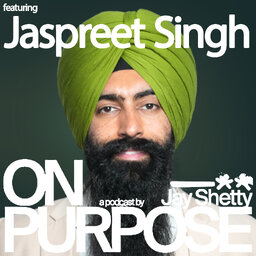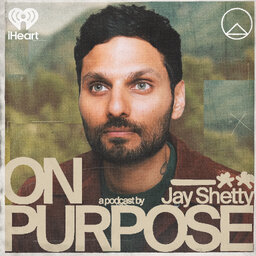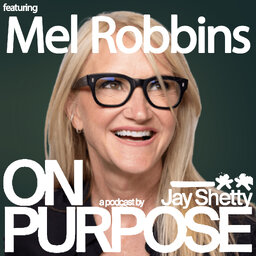7+ Powerful Habits To Avoid Loneliness, Feel Connected And Build Authentic Community
Ever find yourself yearning for a deeper bond with those around you?
Creating deeper connections doesn't have to be an exhausting or daunting task.
We can still create connections in the simplest most ordinary ways if we make time for it and show sincerity.
From the hustle and bustle of everyday life to the moments of solitude, we'll uncover the secrets to forging relationships that stand the test of time. Your social life doesn't have to feel like a performance – let's make it a celebration.
Let's explore how broadening your emotional language can be the key to unlocking a world of deeper connections. Say goodbye to surface-level chatter and say hello to discussions that spark genuine connections. From sharing smiles with strangers to using technology to our advantage, each habit is a stepping stone to deeper relationships.
In this episode, you'll learn:
How to bridge connection gap
How to tune into yourself before making connections
How to be more vocal about your emotions
How to make new memories with old friends
How to start engaging conversations
Hope you're able to genuinely connect with someone today. Let's make every connection count!
With Love and Gratitude,
Jay Shetty
What We Discuss:
00:00 Intro
01:36 Do you sometimes feel lonely, or disconnected from the people around you?
07:58 Habit #1: Check in with yourself - Does your social life start to feel like work or when your social life feels like it's non-existent?
14:14 Habit #2: Expand your emotional vocabulary - If you wanna see, hear, and understand and value other people better, you need to expand your emotional vocabulary
17:56 Habit #3: Old new and new old - While we use nostalgia to build connection, try to build new memories with an old friend
20:44 Habit #4: Ask interesting questions - Go for more open and fascinating questions that won’t pressure other people to answer
23:05 Habit #5: Deep versus shallow time - Take the time to invest in creating a small group where you can build deeper connections
26:07 Habit #6: Look for patterns and connections where others don’t see them
27:20 Habit #7: Smile at strangers and say hello creates an energy for small moments of connection
28:40 Habit #8: Use technology to your advantage and connect with people you haven’t talked with in a while or reconnect with them anytime
30:04 Habit #9: Giving creates connect - When you give someone a part of you, a piece of you, a truth about you, it allows you to connect with them
30:52 Habit #10: Invite people for ordinary tasks - It’s okay to spend time with people in boring ways and connect with them
31:34 Habit #11: Connecting with people in all ages
In 1 playlist(s)
On Purpose with Jay Shetty
My name is Jay Shetty, and my purpose is to make wisdom go viral. I’m fortunate to have fascinating …Social links
Follow podcast
Recent clips

Jaspreet Singh: Why Most People Stay Broke (Follow THIS 7-Step System to FINALLY Stop Living Paycheck-to-Paycheck!)
1:19:03

Feel Stuck, Confused, or Behind? Use THIS Blueprint and Completely Transform Your Life in ONE Year!
23:16

MEL ROBBINS: How to Stop People-Pleasing Without Feeling Guilty (Follow THIS Simple Rule to Set Boundaries and Stop Putting Yourself Last!)
1:15:47
 On Purpose with Jay Shetty
On Purpose with Jay Shetty